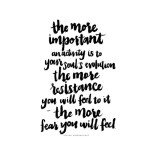Family is extremely important to me. My daughters and husband are my world. I can’t go long periods of time without seeing my parents and my sister and her husband—let alone a day without talking to them. And for my closest friends (i.e. my second family) I tell them often how much they mean to me. Essentially, I smother people with my love.
My sister Puja and I have always been very close. From the day I was born, she took it upon herself to love me and protect me. Even at four years old, she was trying to give me bottles and cover me up with blankets to keep me warm. Despite our four-year age difference, my mom dressed us alike (a bad habit I have also adopted with my daughters), and as we grew up we chose to share a room even when we didn’t have to. Of course, I played the annoying little sister role well, but despite her irritation with me, I knew beyond a shadow of a doubt that she would always be there for me. After college I moved in with her in Chicago, and she continued to be my best friend, protector, and closest confidante.
When I decided to make the leap to move from Chicago to LA, it was a tough decision. Leaving my sister was hard to do, but I figured she and her fiancé needed some alone time, instead of me tagging along on every date. Soon after I left, my sister got into a very bad car accident, resulting in a herniated disc in her neck and a piece of her spine dislodging. After much suffering, several injuries, and a quest to find answers, she was diagnosed with Fibromyalgia. She’s written an incredible series about her experiences on Huffington Post, so if you don’t know much about this medical condition, I definitely recommend clicking over to read it.
Read More: Puja’s Fibromyalgia Series on Huffington Post
Even if you don’t know someone with Fibromyalgia, it’s highly likely you know someone with chronic pain. One in three people in the US suffer from chronic pain, and it can be debilitating (source). I refer to it as the invisible disease because in so many cases you can’t see the symptoms, so people suffer in silence. It’s beyond frustrating to me when people think that those with Fibromyalgia or other chronic pain conditions can control their pain and it’s no big deal. These people are in intense pain every single day. Yes there are days when it is less intense than others, but they never go a full day without life-altering pain. A lot about Fibromyalgia and other chronic pain conditions is still unknown, but every year there is more literature and education, and the dedicated rheumatologists and brave patients help us all learn more.
I’m ashamed to admit that for a long time I didn’t truly understand my sister’s disease either. I attribute some of that to her not sharing a lot of this journey with me, but I soon came to realize that she really couldn’t until she got to a certain point. And I attribute most of that to my lack of education and understanding.
But just like in other areas of my life, once I dug in and started doing my research, I realized that there are ways we can help our loved ones just by being there and understanding. So below are four ways I’ve learned to be more supportive of my loved one with chronic pain.

Understand they are giving as much as they can.
As I mentioned above, for so long I didn’t understand what my sister was going through. I didn’t understand that she could only expend so much energy each day before her body shut down, or that certain noises or smells would exacerbate her pain, or that it’s hard not to be a little cranky when every ounce of your body is in excruciating pain.
Instead of shutting down, open up to what your loved one is going through. Ask them questions with tangible answers, like what their pain level is that day or what they feel like participating in. And when you’re spending time together, don’t overwhelm their schedule! In my sister’s case she is a high-powered career woman who gives a lot to work despite her disease. When she’s on vacation or spending time with her family, she needs to let her body rest, and for those around her, we need to allow her to do that, guilt-free.
Check in often but give them their space.
My sister and I are very close and we talk several times a week. But sometimes, she has a really hard pain week and just doesn’t have the energy to be on the phone after she’s already given so much to her job, husband, and home. However, she does want to know that I’m thinking about her and appreciates when I check in. Before I truly understood her pain, I would get bothered when she wouldn’t initiate as many conversations or contact me as much. I thought she didn’t have time for me, but now I realize she might not have it in her to talk that day, or that she is experiencing such a bad flare up that she can barely brush her teeth, let alone have a phone conversation. Giving space is just as important as checking in on their well-being.

Get educated on their condition.
The onus is not solely on the person with chronic pain to educate you on their condition. It’s also our responsibility to learn more about it. My sister sends my family articles and information on Fibromyalgia, but we have also taken it upon ourselves to seek out this information. It enhances our relationship with my sister and allows us to show her we care by truly trying to better understand what she goes through.
Relationships may be different, but different can still be good.
In fact, they may become better through communication and empathy.
As ridiculous as this sounds there were days when I was mad at the Fibromyalgia because I felt like it had stolen the relationship I had with my sister. It had robbed us of our daily conversations and frequent visits. Not to mention, how heartbreaking it was to see her in so much pain. But at the same time, the Fibro has also helped us learn more about each other, trust each other in brand-new ways, and communicate better than we ever have before. It’s taken our support of each other to a whole new level, and for that I am so thankful.
I’m constantly in awe of my sister. Her strength and tenacity in the face of Fibromyalgia is nothing short of inspiring. She pushes herself more than anyone I know. Not only is she a successful career woman, but she founded the first women’s alliance at her company, is an advocate for those with Fibromyalgia and chronic pain, and still manages to be a dedicated wife, daughter, and sister.
My only wish for her is that one day, they will find a cure for this and she will be pain-free.

Do you suffer from chronic pain or have a loved one who suffers? What sort of tips and advice have you learned through your experiences? Please share them in the comments below. I’m eager to hear them!
This post has been featured on Huffington Post.






